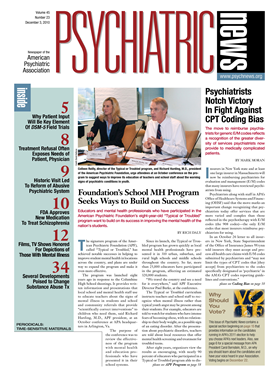There is a clear relationship between greater patient satisfaction and better outcomes, including adherence to treatment. In many studies, patients have repeatedly said that they desire empathy, compassion, understanding, and active listening skills from their health care providers.
One specific feature of the clinical visit that may improve patient satisfaction is fully soliciting a patient's symptoms and concerns. A study in the January 20, 1999, Journal of the American Medical Association by M. Kim Marvel and colleagues found that physicians often neglect to give adequate time and attention to uncovering a patient's entire range of complaints. Their survey of more than 250 family physicians found that less than one-third (28 percent) of the doctors fully inquired about their patients' symptoms. The JAMA article also reported that once a clinician honed in on a primary complaint, the likelihood that he or she would go back and question the patient about all additional complaints was low (8 percent).
In psychiatric populations, a significant number of patients experience comorbid symptoms that may be impairing and distressing and require treatment. As such, the design and implementation strategy of the DSM-5 field trials (as discussed in the October 1 and October 15 issues) actively involves patients in the study assessments to acquire a broader collection of information. This is done by using a set of questionnaires that cover a wide range of psychiatric symptoms, prompting clinicians to engage in a “review of mental health systems” for all patients.
Patients who endorse an item on an initial form will be asked to complete an additional short measure that assesses symptoms in greater detail. The use of patient-outcome measures for these added assessments is especially valuable, as they are designed to help clinicians gain insight into patient reports of their symptoms and functioning.
These brief measures are easy for patients to complete and evaluate numerous important domains of functioning, such as mood, anxiety level, change in cognition, sleep quality, substance use, and more. They also give patients an opportunity to discuss more concerns than if the clinician had concentrated primarily on the chief complaint.
Many of the questionnaires used in the field trials are drawn from the National Institutes of Health's aptly titled research initiative, Patient Reported Outcome Measure Information System (PROMIS). For instance, a patient who reports experiencing depressed mood or loss of interest would complete the eight-item PROMIS mood scale. This should alert the clinician to the level of depressed mood and the possible presence of a mood disorder or the presence of significant mood disturbance as part of any other disorder in the DSM.
The inclusion of these measures does add extra time to the field trial clinic visits, but the opportunity to gather potentially useful clinical data—and, in doing so, making patients active participants in their own care—outweighs the minor time cost. In fact, in the JAMA survey, visits in which patients completed their entire list of concerns lasted on average 15 minutes and 18 seconds—a mere 26 seconds longer than visits in which patients' concerns were not completely solicited (14 minutes and 52 seconds, on average). The forms completed by field trial clinicians include a reminder to ask whether the patient has any additional concerns not reflected in the measures. Of course, one of the goals of the field trials is to determine how feasible or realistic DSM-5 revisions are to real-world settings. If patient feedback suggests the questionnaires are burdensome, their role in DSM-5 may need to be reconsidered and reduced in importance.
Another aspect of the field trials designed with patients in mind is the structure of the study visits, which are staggered in a way to mimic routine clinic visits. All patients are asked to take part in a clinical interview during their first study appointment, and the interview is then repeated by a different clinician at a second visit. In the large-setting field trials, this second interview can occur as soon as four hours after the initial visit, enabling patients to complete both interviews in one day, or as late as two weeks later, allowing patients the flexibility to schedule the interviews concurrently with other appointments. The third study visit can occur anywhere from four to 12 weeks after the second. Since many patients see their psychiatrist for monthly or bimonthly medication checks, the third interview can take place at a time that coincides with a regularly scheduled appointment.
For the routine clinical-setting field trials, patients are asked to participate in only two interviews. The second study visit is scheduled four to 12 weeks after the first, again providing some flexibility to help reduce inconvenience to patients.
Asking patients to do anything beyond what they normally do at their appointments always carries some risk for creating burden. Then why are we asking patients to complete these forms? It is our hope that revisions to DSM-5 will lead clinicians to perform more complete evaluations, and these questionnaires are designed to facilitate this. Patient measures are also informative to the clinician and provide a systematic method for collecting contemporaneous information. And based on findings from patient-satisfaction studies, we expect that many, perhaps even most, patients will appreciate and value the opportunity to have a fuller dialogue with their health care provider about their problems.
Whether this prediction is accurate and whether the forms help improve diagnosis and treatment planning remain to be seen. The routine clinical-practice field trials will be particularly helpful in answering these and other questions, and in the next column, I will discuss some important advantages these routine clinical-practice field trials offer over the larger, academic field trials.

